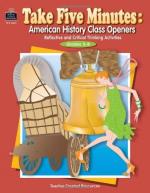|
This section contains 377 words (approx. 2 pages at 300 words per page) |

|
Nineteenth-century educators believed that textbooks were the "great storehouses of knowledge, and he who has the habit of using them intelligently has the key to all human knowledge." Technological innovations had led to cheaper, mass-produced print, and textbooks—from grammar to Latin to algebra—helped define acceptable knowledge and shape instruction. Textbooks presumably democratized information, making specialized learning available to everyone. William T. Harris, a staunch friend of the high school and later U.S. commissioner of education (1889-1906), defended these books in 1880 against charges that they promoted "lifeless instruction" since most class work consisted of memorization of the text contents. Standard texts, he argued, enabled "the bright pupil, even under the worst methods of instruction, to participate in the recorded experience and wisdom of mankind," and they also helped "even the dull and stupid, to some extent."
Voices of Authority.
The most...
|
This section contains 377 words (approx. 2 pages at 300 words per page) |

|




